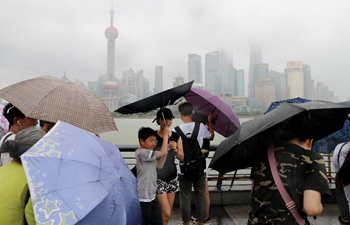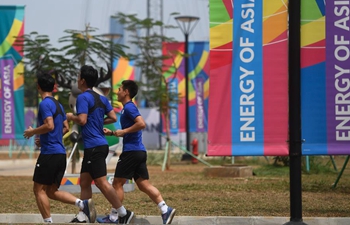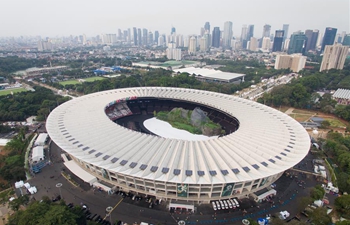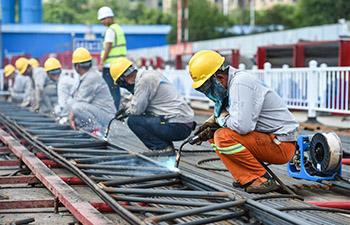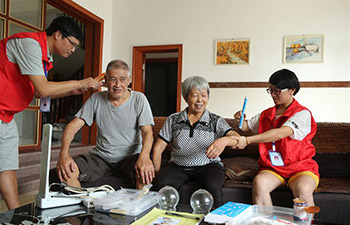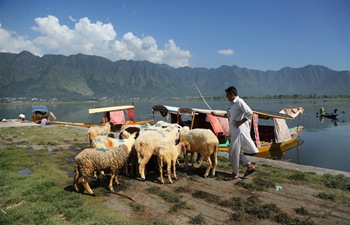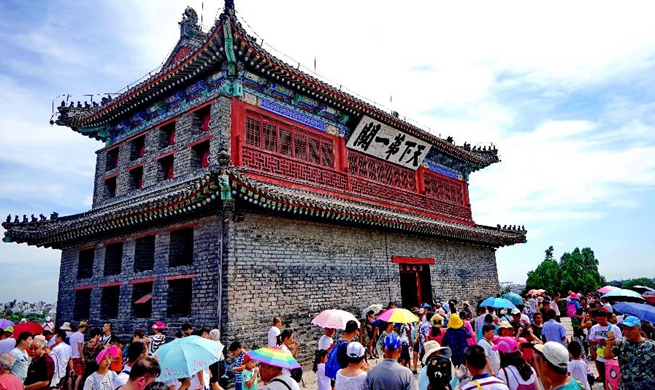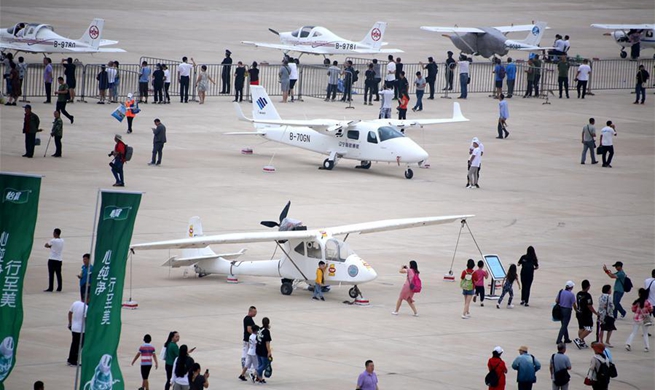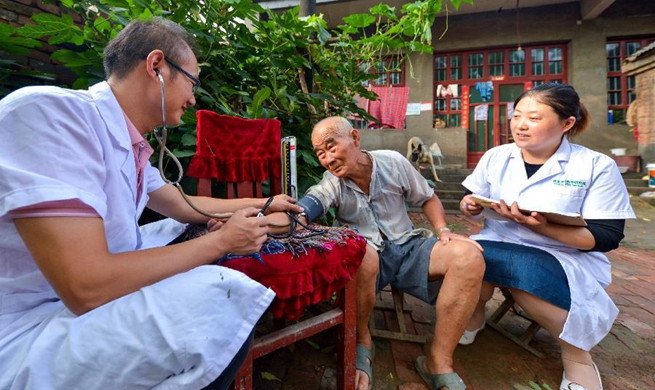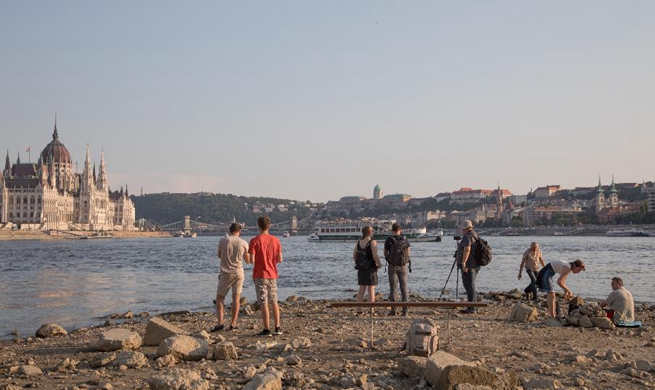BAGHDAD, Aug. 18 (Xinhua) -- "Wherever I go, I do not forget Iraq and its football, the most popular and beloved game," Arshad al-Saadi, sports journalist and media coordinator for Iraqi Football Association (IFA) told Xinhua.
Born in 1985, the renowned Iraqi football journalist has gone through the pride and glories brought by football in the war-torn country while dreaming that Iraq's national football team would advance further in the 2022 World Cup.
"Football has a magic impact to cure the wounds of the Iraqi people, who have suffered so much from the scourge of war, sectarian strife and violence," said Saadi.
FIFA BEST FOOTBALL AWARDS
Saadi, as a sports expert, was chosen for the third successive year by the world football's governing body FIFA to represent Iraq among a list of 200 sports journalists around the world to vote for the best FIFA football awards that included the best players.
Saadi, who first joined FIFA media activities in 2010, said "my media career introduced me to FIFA branch in West Asia, which gave me opportunity to meet some FIFA officials and its media workers."
Born one year before Iraq registered its first participation in the World Cup championship in 1986 in Mexico, Saadi's passion for football grew up with him earlier in his life, when he joined the under-15 football team of al-Naft Sport Club.
Saadi grew up with a great love for football at a popular Baghdad neighborhood. His passion in football pushed him to participate in as many activities as he can related to football.
"My dream is that the Iraqi football will reach world championships and achieve good results. I always carry the issues and concerns of the Iraqi football in my mind and I do my best in all sports conferences and forums held by FIFA, especially the issue of lifting the ban on Iraqi football," Saadi said.
Meanwhile, he works as head of Sada Sports Agency and the spokesperson of Iraq's youth football national team.
HISTORICAL MOMENTS
Saadi was a student in a media college when the Iraqi national football team won the 2007 Asian Cup, the most precious victory in Iraq's sports history.
"At that day (final match day), with the final whistle of the referee to announce Iraq's historic victory, we went out to the streets to dance, sing and raise Iraqi flags," Saadi said.
"It was really historical moments for all Iraqis, and this victory also unified the Iraqi factions," Saadi said.
The triumph has been described as one of the greatest fairytale victories in football matches, with the team managing to eliminate competitors with far greater preparation and resources on their way to the title, bringing joy and unity to the people of their war-torn nation.
The 2007 victory was not the first time that football played such role of giving hope at difficult times that Iraq has passed in the past decades.
"In 1986 when Iraq was in the middle of the bloody war with neighboring Iran, the qualification to the Mexico World Cup pleased the people who were under the pressure of the eight-year long war," he said.
Saadi believes "life doesn't stop because something happens to us, therefore determination to our success must be strong enough in ourselves."
LIFTING OF 3-DECADE BAN
The Iraqi national football team, known by its fans as Lions of Mesopotamia, witnessed no glorious matches in Iraq as a result of a nearly three-decade ban on holding international football competitions imposed by FIFA.
In February 2018, FIFA gave Iraq green light to host international friendly matches for the first time since the 1990 Iraqi invasion of Kuwait under former leader Saddam Hussein.
The green light for friendly matches was the first step of lifting the ban, and now Iraq can host international matches in Basra, Erbil and Kerbala, while friendly matches are allowed in Duhok, Sulaimaniyah and Maysan.
Saadi was part of the Iraqi team that accompanied FIFA delegation which visited Iraq to assess the readiness of the cities of Basra, Karbala and Erbil to host matches.
"Lifting ban on Iraqi stadiums was a significant moment in shaping the future of the game here. It came after hard work on different levels to achieve such positive outcome for the game," Saadi added.
Saadi also called for the Arab football federations to urge FIFA to support a championship for all Arab national teams with the aim of upgrading the technical level of the game in the Arab world.
NEW HOPE
Despite difficulties of funding sports activities due to lower prices of oil in the international markets, in addition to the lack of sports installations and other infrastructures, the IFA initiated a new plan to create a new generation with the goal of qualifying for the 2022 World Cup.
"During the past two years, Iraq has built football stadiums and sports cities and is planning to bring a high level foreign coach to develop a new strategy for the football national team, including establishing training camps for players outside the country," Saadi said.
"We are determined to qualify for the 2022 World Cup, and we will devote all our efforts to realizing this dream of all Iraqis," Saadi added.
Saadi, with confident, said Iraq has ambitions that even if the country would not make it to the World Cup in Qatar, there would be a larger opportunity in 2026 after FIFA decided that 48 countries will take part in the tournament, with eight places for Asia instead the current four places.
"The IFA will have enough time to 2026 for Iraq's strategy to give its fruit by building a new generation of football players," Saadi concluded.
"We have to develop football in Iraq, because this is the number-one game for most of our people. It is the source of their happiness and hope for a better future," Saadi said.




